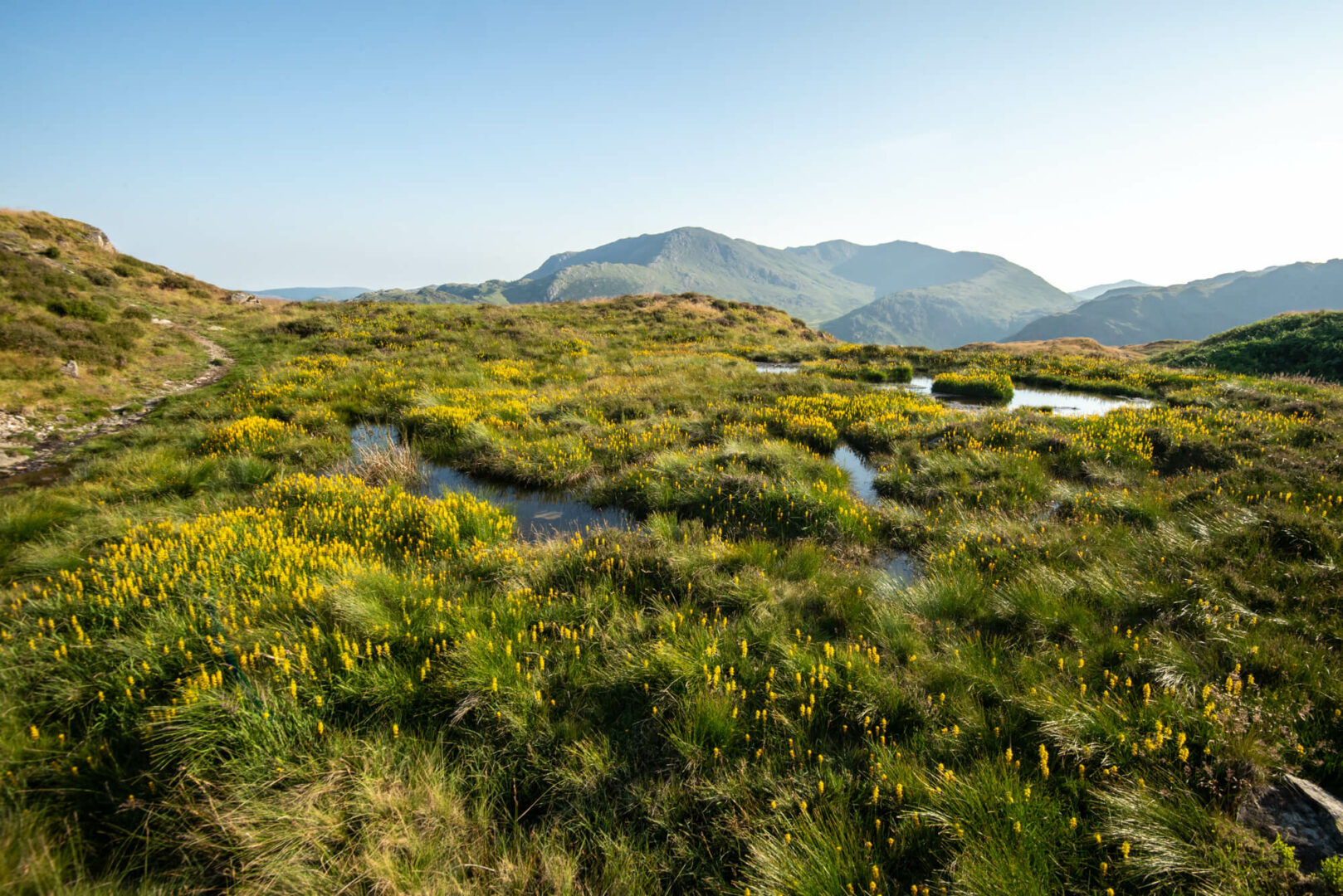Also over one-third of moorland is designated as a SSSI and therefore has additional restrictions on its management. It is important to discuss any changes in management including grazing levels, burning and drainage with Natural England as they will probably require consent. You can find out if your common or moorland is a SSSI via looking on Defra MAGiC mapping tool and more information on obtaining consent is found at Sites of special scientific interest: managing your land. Also see Information on applying for a licence to burn on deep peat designated as a SSSI.
All land in the Moorland region is now eligible for the SFI Moorland Introductory Standard. This is a survey of the public goods on your moorland / common which will help you plan future management options. You are paid to survey one point every 10 ha each year for three years. More information is available on SFI Moorland from Defra moorland and upland peat and on the Foundation for Common Land’s online toolkit. A digital tool to collect the SFI Moorland survey data is currently being developed with more information available in May 2023.
Defra are still developing more Moorland options but even know there are plenty of CS options to explore e.g. for moorland restoration, blanket bog restoration, wood pasture creation and management. These include annual management payments and capital works. The capital works need to be undertaken in the first three years of the scheme.
Much of the moorland region is in National Parks and Areas of Outstanding Natural Beauty and activities in these areas may be eligible for additional funding under the Farming in Protected Landscape Scheme.
Managing common land brings additional responsibilities including:
- All works on commons such as fencing, tree planting and tracks require consent from the Defra Secretary of State, a process managed by the Planning Inspectorate. It can take 6-12 months to obtain consent so do plan ahead.
- When you enter a common into an ELM scheme e.g. CS or SFI all payments for CS and SFI are received by a single entity. The common will require an internal agreement which usually involves setting up a Commons Association and all commoners, any tenants and the landowner must be consulted with in advance.
More information on Commons can be found on the following websites:
- Foundation for Common Land has lots of resources including an online toolkit
- Federation of Cumbria Commoners
- Dartmoor Commoners Council
- Works on Common Land
- Requirements for entering Common Land into Stewardship Schemes
